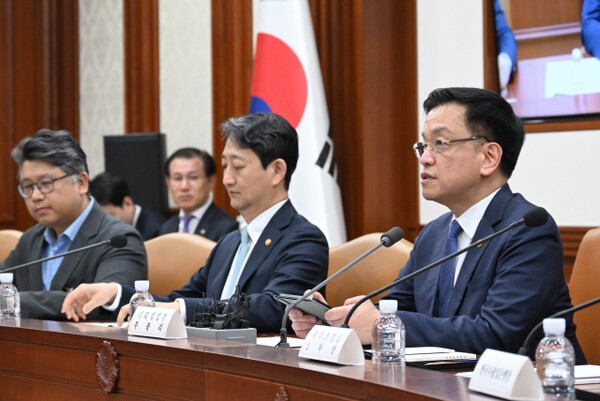South Korea's Strategic Shift to Active Fiscal Policy
In response to a prolonged domestic slump and sluggish exports, the South Korean government has decisively shifted its budget management principle towards an active fiscal policy. This strategic move aims to catalyze economic recovery, targeting a growth rate that has dwindled to an annual 1.5%. The upcoming year's budget is projected to surpass 700 trillion won, marking a significant increase of over 4% from the current year's adjusted figures.
Government's Proactive Measures
On March 25, a cabinet meeting approved the "Guidelines for the 2026 Budget Proposal and Fund Management Plan," setting a mandatory framework for government departments. Notably, the guidelines underscore the pivotal role of fiscal policy in economic revival and industrial competitiveness enhancement, omitting the previously emphasized "sound fiscal policy" principle.

Global Economic Pressures Prompt Policy Reevaluation
The urgency for this fiscal shift is partly attributed to the global economic uncertainties following the Trump administration's policies. With major institutions like the OECD and Goldman Sachs revising Korea's growth forecasts downward, the government's pivot reflects a broader trend of nations leveraging fiscal spending to navigate economic challenges.
Comparative Global Fiscal Strategies
Countries such as Germany and China are adopting expansive fiscal measures, with Germany establishing a 500 billion euro infrastructure fund and China injecting 4.83 trillion yuan into economic stimulus. These moves highlight a global recalibration in fiscal strategy in response to shifting economic landscapes.
Focus on Future Industries and Social Safety Nets
The South Korean government plans to prioritize investments in AI, biotechnology, and quantum technology, alongside bolstering social safety nets for vulnerable groups and small business owners. This approach underscores a balanced focus on cutting-edge industries and societal welfare.
Expert Insights on Fiscal Efficiency
Experts advocate for strategic resource allocation, emphasizing the need to curtail inefficient spending while investing in future-oriented sectors. The government's commitment to reviewing mandatory spending and enhancing fiscal efficiency is a step towards sustainable economic growth.







Comments